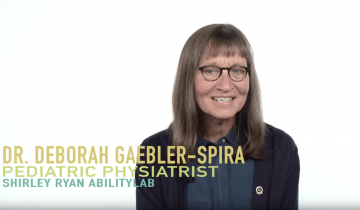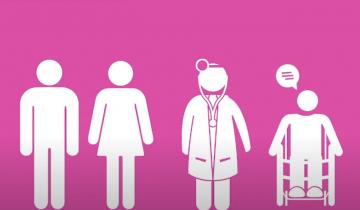We studied how common pain was thought to be due to muscle spasticity in the legs or arms is in children/adolescents with CP.
Can there be a genetic cause of Cerebral Palsy in some cases? Let's Talk CP host, Cynthia Frisina talks with Dr. Michael Kruer about this topic and his ground-breaking research in Part 2 of a two-part discussion about the possible genetic causes of CP. When Michael Kruer was in medical school, he knew he wanted to work with children. With advancements in gene therapy opening up incredible opportunities in neuroscience, he realized he could be a part of something much bigger than himself and give children affected by movement disorders like cerebral palsy hope that didn’t seem possible just a few years ago.

Drooling is an important problem for many individuals with CP and there are a number of interventions available to treat symptoms. If an individual with CP or their caregiver have concerns about drooling it is important to discuss with a health care provider. Care pathways such as the AACPDM pathway can be a starting point for shared decision making. In all cases, working together as a team is important in choosing the best alternative. Children and adults with CP may have trouble with drooling, or saliva management. In the medical world, drooling is referred to as sialorrhea. Saliva plays an important role in eating but also can interfere with airway clearance and breathing, as well as social participation. When drooling has this kind of impact it becomes important to consider intervention.
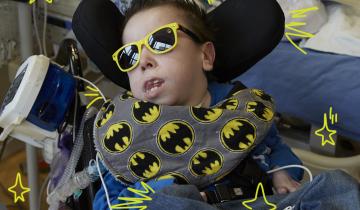
If you're interested in learning more about what is involved with genetic testing and how a visit with a genetic counselor might be helpful, join Cynthia Frisina, the host of Let's Talk CP, as she dives deep with licensed genetic counselor, Danielle Lemke and they talk about what genetic counseling really is, how it can help and what it might be used for as it relates to potential genetic causes of cerebral palsy.

Can there be a genetic cause of Cerebral Palsy in some cases? Let's Talk CP host, Cynthia Frisina talks with Dr. Michael Kruer about this topic and his ground-breaking research in Part 1 of a two-part discussion about the possible genetic causes of CP. When Michael Kruer was in medical school, he knew he wanted to work with children. With advancements in gene therapy opening up incredible opportunities in neuroscience, he realized he could be a part of something much bigger than himself and give children affected by movement disorders like cerebral palsy hope that didn’t seem possible just a few years ago.

Many children with cerebral palsy (CP) have difficulty controlling saliva. Drooling varies in severity and can be distressing for the children, families and caregivers. Chronic drooling is referred to as Sialorrhea and occurs as a result of limitations in a person’s ability to control and swallow oral secretions.
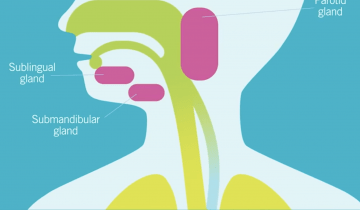
Wondering what to expect if your child has an appointment with a pediatric orthopedic surgeon? Still confused about the different types and levels of cerebral palsy? Dr. Hank Chambers, who is also the father of an adult son with CP, talks about different considerations for different ages and stages of a child with cerebral palsy.
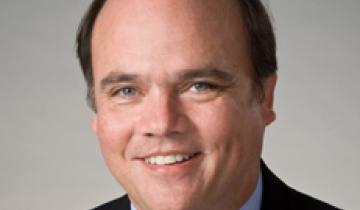
Preparing yourself and your child well for medical appointments means a better experience for everyone. Our “Let’s Talk CP” podcast series continues Cerebral Palsy Foundation host, Cynthia Frisina talking with Physiatrist Dr. Lisa Thornton about cerebral palsy, spasticity and what to expect at many kinds of medical appointments. Questions include what to expect when procedures like botulinum toxin injections are recommended, how to talk with a clinician when “little ears” are listening, and much more. This episode is made possible with the support of Ipsen Biopharmaceuticals.

It is recommended that women start having mammography screenings starting at about the age of 40, and it becomes more difficult to obtain these services if you have a disability.
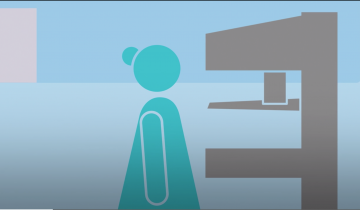
When it comes to preparing your child for Botulinum Toxin injections, the first most important thing to remember is to know your child.

Spasticity is a condition of muscles that is a velocity resistance to stretch. What that means to a child and to a parent is that if you move the limb slowly, you have a difference than if you move that limb fast. Spasticity restricts movement and it creates a break on the system. It's as if they're trying to move, but they're held back. By treating spasticity, you may improve the range of motion or the action of the movement.
